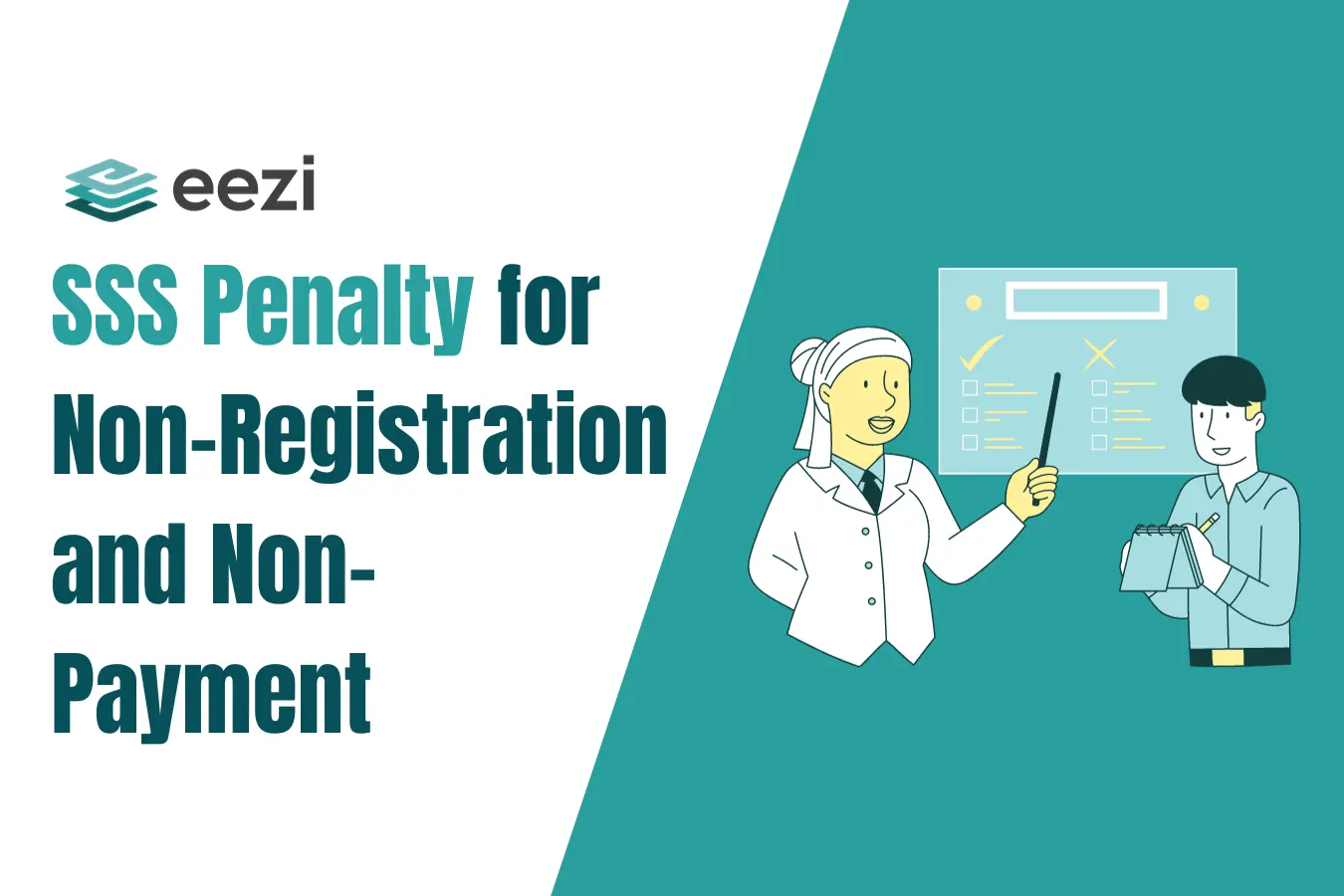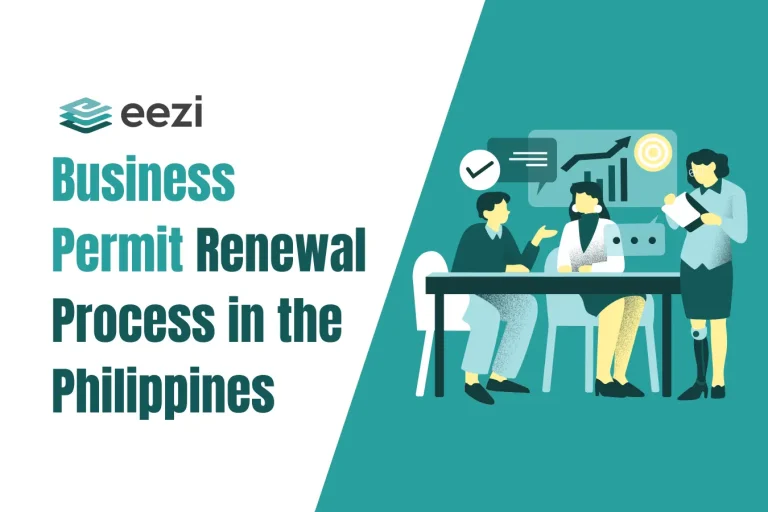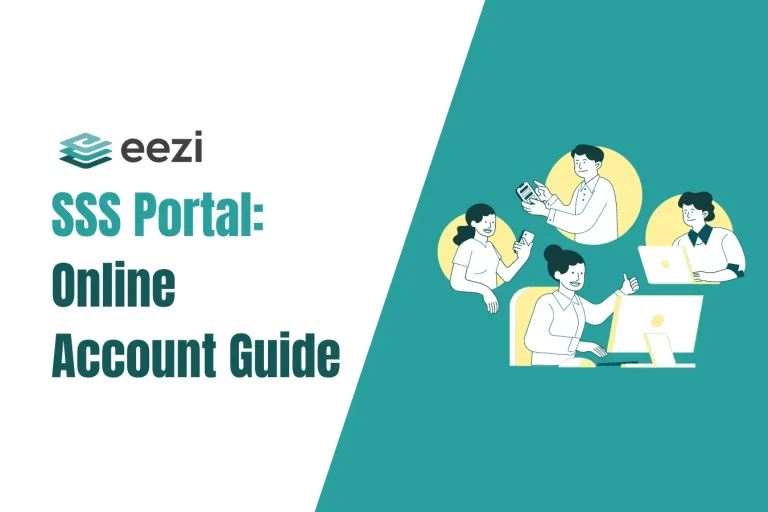What is the SSS penalty for non-registration and non-payment? Why is it important to monitor your SSS contributions?
Jump to Sections
- SSS penalty for non-registration
- SSS penalty for non-payment
- Specific SSS penalties for employers
- Condonation for SSS contributions

Regularly paying your SSS contribution is the key to gaining access to various benefits. In other words, it provides stability and peace of mind.
Imagine having access to a safety net to protect you from unforeseen circumstances in life. The SSS has you covered in case of an unexpected illness, maternity costs, or unfavorable events resulting in unemployment.
Regular payment and contribution monitoring helps you access an extensive network of support services. However, there may be cases where employers fail to make the contribution. This is despite the deductions they make from your paycheck each month.
In cases where employers fail to comply with the SSS requirements, they may face SSS penalties.
Luckily, there are ways you can ensure that your contributions are paid on time. This way, you can keep an eye on your posted SSS contribution and demand payment from your company if it isn’t being sent.
Below, we will discuss the SSS penalty for non-registration and non-payment.

What Is the Penalty for SSS Non-Registration?
Within thirty (30) days or one month after the beginning of employment, each employee must register with the Social Security System (SSS) through their employer. Employers who do not register their employees with the SSS may incur a monthly penalty until the registration is completed.
The penalty amount is usually a percentage of the monthly contribution that should have been remitted for each uncovered employee. However, the lack of SSS registration or EC contribution alone will not be grounds for rejecting any employee’s EC claim.
Illness, disability, death before SSS registration
What if the illness, disability, or death happens after the required 30-day registration period but before the SSS receives a report containing the employee’s name? In this case, the employer will be responsible for paying the SSS lump sum. This is equal to any benefits that the employee or any of his dependents may be eligible for.
What is the penalty for non-payment of SSS?
As an SSS member, you are legally protected from your employer’s negligence or failure to pay SSS contributions.
According to the Social Security Act of 1997 (Republic Act 8282), all Filipino employers are required to deduct monthly Social Security contributions from their workers’ paychecks. They must also make their portion of the contributions and send the money to the SSS on time.
Monthly report of SSS contributions
Also, employers are required to deliver the monthly report listing their workers’ contributions to the closest SSS office. Employers who grossly violate this risk being imprisoned for at least six years. They may also get a fine of PHP 5,000 to PHP 20,000.
This is on top of paying a monthly 3% penalty and all outstanding SSS contributions. In addition, they also have to provide benefits to employees who die, get ill, become disabled, or hit retirement age.
Failure to remit SSS contributions
The failure to remit employees’ SSS contributions is viewed as a type of fraud. As such, a delinquent employer is also accountable for the crime of estafa and violating the SS Law. Under the Revised Penal Code, the employer can then face imprisonment.
So what happens when your employer neglects to remit and record your SSS contributions? In this case, you remain eligible for social security benefits, according to SSS.
However, it can result in the denial of your SSS loan application if the minimal amount of posted monthly contributions is unmet.
What are the specific SSS penalties employers could face?
The penalties for non-payment may include:
Interest on unpaid contributions
If employers do not remit SSS contributions on time, interest may be charged on the overdue amount. The interest rate is usually specified by the SSS and can accumulate until the contributions are settled.
Compromise penalty
There may be a compromise penalty imposed on employers who fail to remit contributions on time. This penalty is intended to encourage timely compliance with payment obligations.
What is the condonation for SSS contributions?
SSS provides businesses with a condonation program to settle their contribution penalties.
Typically, the penalty condonation program gives qualified individuals or organizations a chance to settle their overdue contributions. This is without having to pay the entire amount of penalties and interest that would otherwise be due.
The SSS sets the precise terms and circumstances of condonation schemes, which may differ in duration and eligibility requirements.
In addition to allowing delinquent employers to get back on track with the SSS, this will stop penalties from being added to their past-due Social Security contributions. Also, it will make loans and benefits more accessible to their employees.
Employers who take advantage of the program can resolve their delinquencies for the specified period using one of two payment options. Both of which will eliminate accumulated fines.
- First Option: Pay the entire amount of the assessed contribution delinquency within 15 calendar days of receiving the Notice of Approval from the SSS.
- Second Option: Make installment payments over four to 24 months, depending on the total amount of the employer’s delinquency.
Here’s the monthly installment payment schedule example:
Amount of Delinquency / Maximum Number of Monthly Installments
Up to 1,000,000 – 4 months
1,000,000 to 2,000,000 – 8 months
2,000,000 to 5,000,000 – 12 months
5,000,000 to 10,000,000 – 16 months
10,000,000 to 20,000,000 – 20 months
More than 20,000,000 – 24 months
Under the installment payment plan, a down payment of at least 5% of the principal amount in arrears must be made. Additionally, it has an annual interest rate of 6%.
Employers wishing to apply for the Pandemic Relief and Restructuring Program (PRRP) 2 must send an Application Form to the Large Accounts Department (LAD) or the Social Security System (SSS) branch, whichever has account jurisdiction, together with the suggested payment method and any supporting documentation.
Why is it important for companies to register both their employees and their businesses with SSS?
Businesses in the Philippines are required to register with the SSS. Every employer is legally obligated to register their business and any qualified employees with the SSS as a component of the business registration process, regardless of the scope or size of the business.
A portion of the income from both companies and employees is contributed to the SSS, which serves as the foundation for the benefits offered by the system.
Employees between 18 and 60 are eligible to become members of SSS, while self-employed people are also welcome to decide whether to enroll in the program.
There are usually restrictions on exemptions from SSS participation. Certain employee classes, such as public officials who are insured by the Government Service Insurance System (GSIS), may not be eligible.
Enrollment of eligible employees in the SSS is the responsibility of the employers. Based on the employee’s monthly wage, both the company and the employee make contributions to the SSS. These contributions are based on the minimum monthly salary credit.
Before registering with the SSS, businesses must obtain the following records and data:
- Documents for Business Registration
- Licenses, business permits, and other legal records attesting to the company’s legal status.
- Employee Details
- The names, birthdates, and SSS numbers of all eligible employees should be listed.
- Accounting Documents
- Records that demonstrate the company’s sound financial standing and ability to make contributions to the SSS.
If your business and employees are not registered with the SSS, there may be fines, penalties, and legal repercussions. Penalties may include fines and being ineligible to receive Social Security benefits.
Types of SSS Coverage under the Regular Program
As an actively paying member of the SSS, either as a worker in the private sector or as an individual member (self-employed, voluntary member, OFW, non-working spouse), you and your beneficiaries are assured of prompt, convenient, reliable, and meaningful social protection today and in the future.
The SSS commits to providing all members with adequate social security benefits on time, especially in times of contingencies such as sickness, maternity, disability, old age, death, and even unemployment.
There are two (2) types of coverage under the regular SSS Program: Compulsory and Voluntary Member.
Compulsory Coverage:
- Employer (Business or Household Employer)
- Employee
- Self-Employed
- Househelper or Kasambahay
Overseas Filipino Workers (OFW) (land-based and sea-based, except for Filipino permanent migrants, including Filipino immigrants, permanent residents, and naturalized citizens of their host countries, who may be covered on a voluntary basis)
Voluntary Coverage:
- Non-Working Spouse (NWS)
- Separated Members
Take Away
Registering your company and employees with the SSS is not only required by law but also a critical first step in guaranteeing the welfare and financial security of your workers.
Moreover, paying and updating your employees’ SSS contributions is very important. Besides, it is unlawful and punishable by law to fail to remit SSS contributions.
Update and Pay Your Employees’ SSS Contribution On Time
There may be occasions when your employer fails to update your contributions. This typically occurs when HR accomplishes tasks manually, is overworked, and forgets to submit the employees’ monthly contributions.
But things shouldn’t be this way. With eezi, you may now say goodbye to laborious manual payroll processes! eezi is a configurable and compliant application that does all the work in calculating your employees’ salaries and contributions—saving you the trouble.
You can finally stop doing tedious manual pay computations and greatly minimize errors and disparities in contributions and monthly payment computations.



